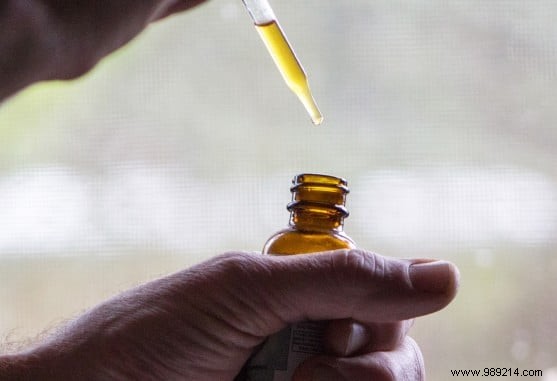Medical cannabis use has grown by leaps and bounds around the world. And it is from this boom that new questions arise with inconclusive answers. Find out everything you need to know about CBD oil below to solidify your opinion.
What is CBD? This is the question most frequently asked by interested parties who do not know this acronym and who need to consume cannabis for medicinal purposes to treat all kinds of pathologies. CBD is short for cannabidiol , one of the active compounds cannabis that has multiple implications in the treatment of various diseases of neurological or traumatic origin.
One of the main benefits of CBD is that it does not generate any type of psychoactive reaction, and that is why it has become one of the most sought after compounds by chronic or acute patients. Among the characteristics of CBD include its non-psychoactive properties (does not generate addiction, hallucinations and is well tolerated), neuroprotective (delays neuronal aging), anticonvulsant (frequent in neurological pathologies), antioxidant, antipsychotic, anti-inflammatory, analgesic (for chronic and acute pain), antitumor and without side effects.
CBD can be consumed in different presentation forms , being vaping, topical application and consumption of sublingual drops by CBD oil favorites for ease of use and short-term effects. However, there are other ways to ingest it, such as chews, sprays, and edibles that contain this active compound among their ingredients.
Due to its good tolerance and immediate therapeutic effects, many patients have medical indications for consuming 6% CBD oil . This form of presentation has immediate effects by having a higher content of active and therapeutic compound, without this implying the appearance of undesirable effects.

Can patients consume CBD suffering from seizure disorders, neurodegenerative diseases such as Alzheimer's disease, Parkinson's disease, ALS. It can also be used by people who need help kicking addictions or unhealthy habits like smoking. Also, anxiety, psychosis, autism spectrum disorders, chronic inflammatory diseases such as bowel inflammation, rheumatoid arthritis and Crohn's disease, cancer patients who need to fight nausea and whet the appetite, and also for patients who need antitumor treatment.
If you're just starting to delve into the vast world of medical cannabis, you've probably read or heard about terpenes. These are volatile compounds found in plants . All plants that have an aroma have terpenes, like roses.
Just like these flowers, cannabis has a high content of terpenes, which explains its particular aroma that interacts with the olfactory cells. In addition to giving many members of the plant kingdom a distinctive aroma, terpenes offer therapeutic benefits that aid in the absorption of CBD in the body, fighting inflammation and providing general antibacterial and analgesic properties.
After consuming CBD in any form, the active compounds such as cannabidiol interact with the endocannabinoid system which has specific receptors. This internal system functions as a regulator of the nervous, immune and endocrine systems. Thus, the endocannabinoid receptors present in the brain and in the immune system receive the active compounds such as cannabidiol and from this interaction are sent cellular second messengers that generate therapeutic effects that act on the level of pain, the immune system, neurons and inflammation.
After this interaction, the CBD will go straight to the target organ that needs the immediate effects. For example, when a person uses an electric vape, the molecules of the active compound reach the pathways more easily respiratory . The effect can occur within the first five minutes, so it is advisable to start with a minimal dosage until the desired effect is achieved.
Another way to ingest CBD oil is the sublingual route, in which cannabidiol enters the body through the capillaries under the tongue with short-term effects. Effects may occur within 30-45 minutes of ingestion. The same goes for edible products whose absorption takes place at the intestinal level.
After entering the bloodstream, CBD travels non-stop to the endocannabinoid system to generate its final effects. Science has also shown that cannabidiol activates other receptors such as the adenosine and anandamide receptors. Short-term and long-term exposure generates hepatic metabolization of CBD which transforms it into inactive compounds which are then eliminated through the urinary tract.
The effects of CBD last between 6 and 12 hours, although the half-life of cannabidiol in the body is 1 to 2 days until it is completely eliminated. This half-life is given by the time of metabolism and elimination in the blood.
Like humans, pets have endocannabinoid systems which allow the interaction of cannabidiol to treat all kinds of pathologies such as inflammation, joint pain, appetite, among others.
There are currently various products on the market suitable for animal consumption that can be applied in the form of tinctures, capsules and feed. The dosage is usually lower, since these are animals that are smaller in weight and size than humans, and therefore need a lower amount of active components to generate the same effect.
Talking about hemp and marijuana is like talking about the same plant, cannabis sativa, although they are not the same thing. Cannabis has different forms – phenotypes – which depend on its genetic ancestors and determine its type of growth.
However, the drastic difference between the two is that hemp refers to any plant containing less than 0.3% THC, while marijuana refers to any type of cannabis plant containing more than 0.3% THC.